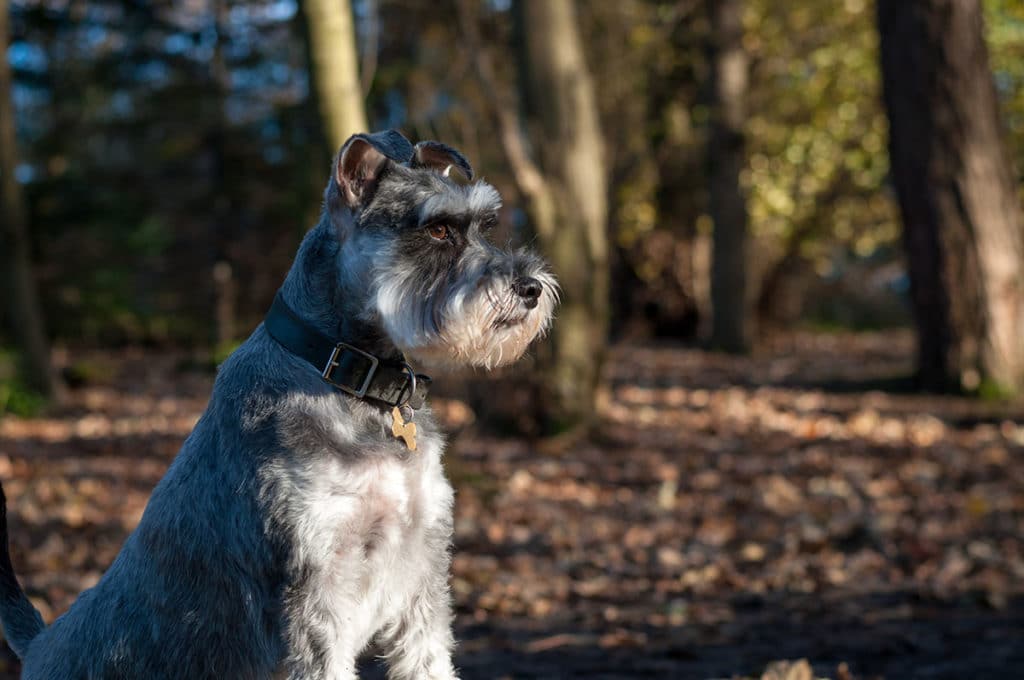You have probably seen your terrier digging and eating mice.
This is not abnormal due to his hunting behaviour, but you should still try to stop your terrier from doing this.
For terriers, chasing and digging are almost normal behaviours. They dig and chase because it is in their nature.

Let’s take a look at how you can best manage this behaviour, but also not take away too much of your terrier’s natural behaviour.
Why do dogs chase mice?
Many dogs hunt mice and other small animals. This has to do with their prey behaviour. Not all dogs are avid hunters, but this behaviour is in their blood.
The mouse is located through the eyes or the sense of hearing, then digging for the rodent usually begins immediately. Often the dog even digs right up to the nest where the young mice are.
Not only terriers like to eat mice, other dog breeds also show this behaviour.
Here it does not matter whether your dog is a hunting dog or not.
It is in the dog’s nature to run after moving things. Not only mice, but also other rodents can be among the prey.
In addition to mice, rabbits are also hunted or hamsters that have built a system of tunnels under the ground.
In addition, there may be a hierarchy problem and insufficient training between you. Terriers are often very stubborn and want to have their own way.
If your terrier is otherwise quite well-behaved and really listens to you, it is due to the dog’s prey behaviour.
This is why the dog should not eat mice
Many dogs also try to catch the mouse while digging. Few dogs manage to retrieve the mouse without anything happening to it.
The mouse is then taken into the mouth and often eaten.
This is normal behaviour for a hunter, but it is advisable to break your terrier of this habit in the long term.
This should be prevented at all costs, because mice faeces contain viruses and bacteria that can also cause serious illnesses in humans if they come into contact with the respiratory tract, mucous membranes or the skin.

Mice are considered a threat to health and hygiene and can also cause various diseases in dogs.
Therefore, it is important to teach your terrier not to dig and hunt mice under any circumstances.
Diseases your dog can get from eating mice
Your dog will often become a definitive host by eating a mouse. If your dog is a successful mouse hunter, it can become infected with tapeworms.
These can also be transmitted to humans. Tapeworms are up to 1.5 metres long and feed on the best of your dog’s food with great appetite. They take away what is most valuable from his food.
Worms prefer vitamins from the B group, which results in a dull, lacklustre coat.
In addition, severe intestinal inflammation and diarrhoea can occur. It is therefore very important that you worm your dog after it has eaten a mouse.
The worming treatment works for about one day. During this time, all worms and their developmental stages are excreted from the intestine and killed. No more infectious worm eggs can be excreted by your dog after this time.
Your vet can give you more information about a suitable worm cure for your dog.
As you can see, it makes sense to prevent your terrier from eating mice. This will prevent your dog from getting unnecessary diseases.
Which dog breed prefers to eat mice?
There are some dog breeds that have been bred to catch mice and rats.
Terriers are experts at catching and hunting small rodents that live underground.
Small-bodied terriers are particularly suited to this. Here, for example, the Jack Russell Terrier should be mentioned.
The Cairn Terrier, for example, was given the task of catching mice and rats. So it is obvious that he also takes other rodents as prey.
The Norfolk Terrier has also established itself as an excellent hunter, especially by catching rats.
This is in their nature, but you do not have to accept this.
How can your dog be discouraged from chasing mice?
To show your dog that chasing mice is not so much fun anymore, there are only these possibilities:
- Training
- Education
In any case, the first step is to teach your terrier through appropriate education and training.
It is not easy to break the hunting instinct. You could try using a leash, for example.
The leash forces your dog to stay in contact with you and to move only within a certain radius. You can train your dog quite easily on a lead.
It allows your dog a lot of freedom, but you can always call him back before the line tightens. It is important to keep in mind that your dog can always be approached by you.
Another option is to show your dog that you are much more interesting than chasing a mouse.
You can give your terrier good alternatives. For example, a toy, either a Kong, a soft toy or the classic treat bag*.
Treats or a favourite food that your dog likes to eat are also suitable. Keep these with you at all times and teach your dog that you have more to offer than digging in the ground.
Studies have shown that mice are capable of feeling. From a mouse perspective, this means that a mouse is just as scared as other creatures.
At dog training school, you can get more tips on how to interact even better with your dog so that he listens to you and stops getting excited about chasing mice.
Here we have summarized our most popular posts for you in a great overview:
- How often do dogs need a haircut?
- List of dog friendly fruits and vegetables
- How much exercise does a Maltese need?
- How much exercise does a Havanese need?
- Where to leave your dog when at work
- Dog doesn’t listen to his name
- Second dog – yes or no?
- Should I buy a puppy or an older dog?
- Are Irish Setters good for first time owners – the facts
Conclusion Terrier eats mice
As we now know, it is extremely important to teach the terrier to stop digging for mice in the long run.
The fun factor may be high for the terrier, but this shows that either your terrier is not sufficiently trained or is displaying a very specific behaviour.
Almost all terrier breeds have hunting and digging in their blood. They enjoy it and can become so attached to it that they won’t listen to you.
Through consistent training, you can get your terrier to turn more towards you and to lose some of his interest in chasing.
In any case, it is advisable to eliminate this problem in the long run, because mice offer viruses and bacteria that are not good for your dog.



